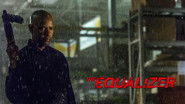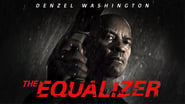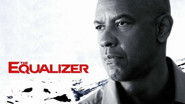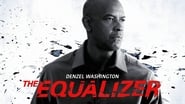fouranhalf
Always love this kind of film. The good guy, after being abused comes out ahead. Big budget, like the way they slow down his actions and then speed up. Lots of feelings in this movie. Main guy helped lots of people cuz he is a good guy with a dark past. Good stuff.
lavatch
"The Equalizer" opens with a Mark Twain quote that gets to the heart of the mystery of the protagonist Robert McCall: "The two most important days in your life are the day you born and the day you find out why." In the course of the film we find out the answer to Mr. McCall's purpose in life, namely, to serve as a modern day Robin Hood and balance things about between good and evil in the world.The film developed a compelling narrative with the ex-CIA black ops specialist McCall who has left his past behind and assumed a mild-mannered role as a Home Mart employee and an avid reader of the classics. Following the death of his beloved wife Vivian, McCall has taken to reading the most famous 100 books. He is seen reading Hemingway's "The Old Man and the Sea" and Ralph Ellison's "Invisible Man." But the most relevant is the one is the novel he only briefly describes to Alina as a story of a medieval knight errant fighting for the causes of good in the world. Of course, that novel is Cervantes "Don Quixote." Robert McCall is a much more effective redeemer and revenger than Don Quixote. He takes on the Russian mafia that has infiltrated the East Coast, enlisting corrupt Boston policemen and American politicians, and engages in human trafficking, money laundering, and other criminal activities.The best line in the film occurs at the lavish estate of one of Mr. McCall's old CIA colleagues. When McCall pays a visit to her, the CIA official casually informs her husband, "He didn't come for help; he came for permission." The "permission" granted to him is to become a one-man wrecking crew of the nefarious Nicolai Itchenko and his associates, plus the Russian based ringleader, Vladimir Pushkin."The Equalizer" was well-directed with stunning location footage of sites in Boston, outstanding work with camera angles, and effective pacing for a longish film. One of the best scenes is a quiet conversation in a restaurant where Mr. McCall nearly teases out of his adversary Nicolai Itchenkoa confession that Nicolai was the boy who killed his kind benefactors after adopting him and giving him a loving environment. Nicolai Itchenko obviously found out who he was early in life, but refused to change. By contrast, Robert McCall recognized many ways that he could fulfill his destiny, then shape-shifted his way to a sense of service to humanity. One path was working in black ops; one was working as the Equalizer; but another was in the simple act of lending a helping hand to those in need like Alina. The best part of the film was Denzel Washington's complex interpretation of this multi-layered role.





















